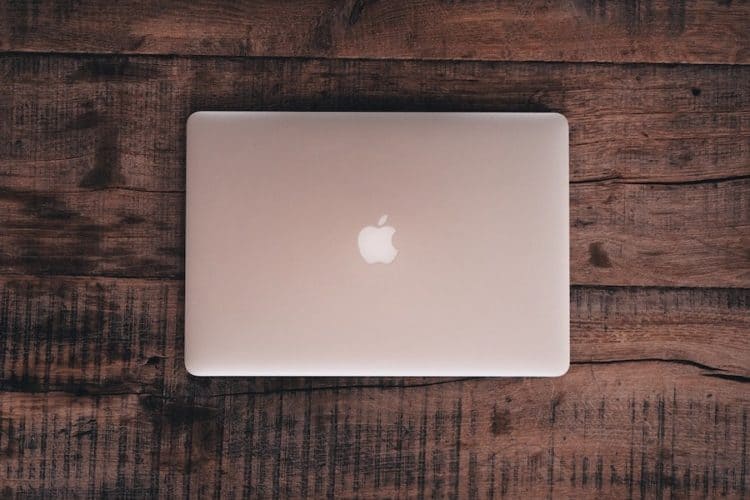
Laptops and computers are expensive investments so it makes sense to prolong them as long as possible. Below are tips that you can follow to help keep your machine to perform as efficiently as possible for as long as it can.
Implementing these steps may seem like a hassle but it will be worth it when you have a computer/laptop that maintains its performance over a period of time.
1. Back Up Your Computer/Laptop
It is important to prioritize backing up your personal data because it is irreplaceable. The operating system on your computer can be re-downloaded along with the applications that are within your operating system.
There are a few options for the type of storage device to back up your data to such as cloud storage or an external storage device. External storage devices consist of external hard drives, external SSD or a USB stick. I have written a more detailed post on cloud storage which you can read here (click here to read more about cloud storage).
External storage devices require you to keep track of where the device is and although you can password protect them, they can still get lost or stolen. Cloud storage allows you to store your data on a remote server and the servers are managed by a company. You can get around 15 GB of cloud storage for free by signing up with companies like Google Drive, Dropbox, and Apple’s iCloud to name a few. If you need more though you will have to pay, which does not cost much. You can get 100 GB for $2 / month from certain companies.
2. Wipe Your Computer/Laptop Every Few Months And Reinstall the Operating System
When downloading or updating applications, drivers, or various software from online your computer may hold onto previous versions of the data that is not being used. There can even be unsuspecting malware on your computer that a detector did not pick up which is why wiping is a good idea. Whenever you notice your computer running slower than it should, this could be one of the causes. This noticeable dip in performance especially applies to users with high-end tech specs on their laptops/computers because it is easier to notice that it is not running at the same speed as before.
Before wiping your computer make sure to back up all your personal and essential data that cannot be restored during the cleaning process. The main part of the process is wiping your drive that has the operating system installed on it then reinstalling the operating system back onto that drive. Afterward, you can proceed to reinstall the data from whatever storage device you decided to back up your data to.
If you have a computer with multiple drives then you can use one of the drives for the operating system and the other drives to store your personal/essential data so that the only drive that needs to get wiped is the drive with the operating system. This can make the cleaning process faster.
To help clean files and folders on your computer/laptop you can download clean up software for your specific operating system. This software is designed to scan through your computer and optimize it by removing old files and folders and they can safely delete applications from your machine.
3. Defragment Your Computer/Laptop
Fragmentation is the occurrence of data such as files or folders being split up to fit on your hard drive. This process happens over a period of time from downloading/deleting data from your computer. If you do not address the fragmentation of data on your computer then it will lead to slower read/write speed, therefore, slower performance. This is because the time it takes to read data from a hard drive is already a slow task, and if your computer has to search for this data on your hard drive from multiple places then it is just going to slow down the process even further.
Defragmentation brings these separated pieces together and reduces the time it takes to read/write data from a hard drive. Mac computers already do this process but Windows users need to keep up with manually defragmenting their hard drives.
4. Download Anti-Malware Software
Anti-malware software protects your computer from malware which is malicious software that is developed to infect and damage your computer/laptop. Examples of malware include different types of viruses, adware, ransomware, and spyware.
An infected or damaged system may be the cause for why your computer is running slower than usual which is why it is best to download anti-malware software. Some of the preventative measures from anti-malware software that I have encountered while using it consists of it regularly scanning my computer for malware, preventing downloads malicious software, and it checking websites before I click on them to see if there is a chance that my computer could be infected by some sort of malware.
Keep in mind that anti-malware software does not protect against all malware. The people who develop malware always try to find ways around anti-malware software, which is why pairing anti-malware software with cleaning your computer every few months is a better option to increase the likelihood that your computer is free of malware.
5. Keep Up With Software Updates
Software updates usually come with new code that aims to make the program run more reliably and with better security. This applies to software updates for your operating system or applications.
6. Make Sure the Vents and Fans are not Obstructed
Vents and Fans on your computer should be free of dust and any other obstructions that could be blocking them. Cleaning them regularly should be a priority because this is the main source for cooling down your computer/laptop. Not taking care of your vents and fans can lead to your computer overheating over time and damage parts within it.
If your computer is heating up more than usual then one of the causes could be that the vents or fans are obstructed. For laptops, it is recommended to not keep them on materials like fabric or similar material that is not good at conducting heat and end up reflecting the heat back to your laptop. This also applies to resting your laptop on your lap or your bed because these surfaces can pull dust and hair into the vents and the laptop can sink into these surfaces causing the vents to get blocked.
A good surface to use is a flat wooden surface or any other material that is flat and can distribute heat throughout its surface.
7. Take Care of the Computer’s Display and Keyboard
Keeping the display clean will allow you to see the full potential of your computer’s resolution. Over time fingerprints, dust and other residue collect on your computer’s display. It may not be noticeable at first, but after cleaning it you will notice a sharper resolution from your screen.
When cleaning your screen I recommend using a microfiber cloth along with a spray that is specific for cleaning computer/laptop displays. Remember to apply the spray directly to the cloth first and then wipe down your screen with the cloth. Do not apply the spray directly to the screen. There are computer displays that do not work with certain sprays so I recommend consulting a tech professional before cleaning your screen if you have worries about this.
If you put your laptop in a bag make sure not to crush it with books or other belongings. Too much pressure on the lid can bend downwards into the screen and cause permanent cracks on the display. Replacing the display or the hardware within it can be a costly repair, which is why it is best to prevent it.
Try not to eat around your keyboard because that is how food can slip into it. There is important hardware under the keyboard for laptops, which is why it is recommended to keep liquids away from the keyboard. I personally spilled water on my laptop keyboard and the price to fix the keyboard on the laptop cost almost the same amount as buying a new laptop which is why I recommend keeping liquids away from laptops. It can be a costly mistake and it is not worth it. If you really need to keep liquids close by, at least make sure it is a bottled drink that can be safely sealed or use a keyboard protector on top of it.
8. Get a Keyboard Protector For Your Laptop
Keyboard protectors are plastic and can be a bit harder to type on but they work to keep your keyboard clean. You do not have to keep it on at all times, but it can be an option to use if you plan to eat food or have a drink near your keyboard.
They are typically plastic sleeves that go on top of your laptop and can be bought for a pretty cheap price.
9. Close Applications that are not in Use
The more applications you keep open at a time, the slower your computer will begin to perform or it may even crash if you open too many at once. This also drains the battery on your laptop faster than it needs to.
Laptops typically have between 4 GB of memory (RAM) on the lower end and 16 GB of memory on the higher end. There are higher-end laptops that have 32 GB though. The applications you open use space from RAM and using the max capacity or close to the max capacity will hurt the overall performance of the machine. This especially applies if you have a machine with a lower amount of RAM.
10. Purchase a Laptop Case for Your Laptop
Laptop cases are a great way to protect your devices from a drop and for when you want to travel with your laptop. Look for a case with a good amount of padding for your laptop.
11. Take Care of Your Laptop’s Battery
Batteries in laptops today are lithium-ion and do a better job at maintaining a charge compared to their older counterpart which was made of nickel. These batteries are still affected by heat and trying to avoid scenarios where your battery is heating up will help extend the lifetime of your laptop’s battery.
As mentioned before make sure to keep the vents on your laptop clean and keep your laptop on a flat surface that conducts heat well so that your laptop is internally cooled. If your doing an intensive task on your computer that causes your CPU, GPU or both to use a lot of processing power then this can also cause your computer to heat up. Usually, you will be able to tell because your laptop will be noticeably warmer and you will begin to hear the internal fan in your laptop go on. It is recommended to not let your laptop heat up for a long period of time because this can also cause damage to your laptop’s battery. If you like to use your laptop outdoors make sure to keep in mind that hot days will have an effect on the internal parts of your laptop such as your battery so try to also use your laptop in cool environments to avoid the battery from heating up too much.
After your laptop’s battery has reached 100% it is safe to keep the charger still plugged in for lithium-ion batteries. These batteries stop charging after 100% so when you leave it plugged in, the battery is only getting charged when the energy falls below 100%. I have a post that goes into more detail for how long to charge a laptop’s battery which you read by clicking here.
